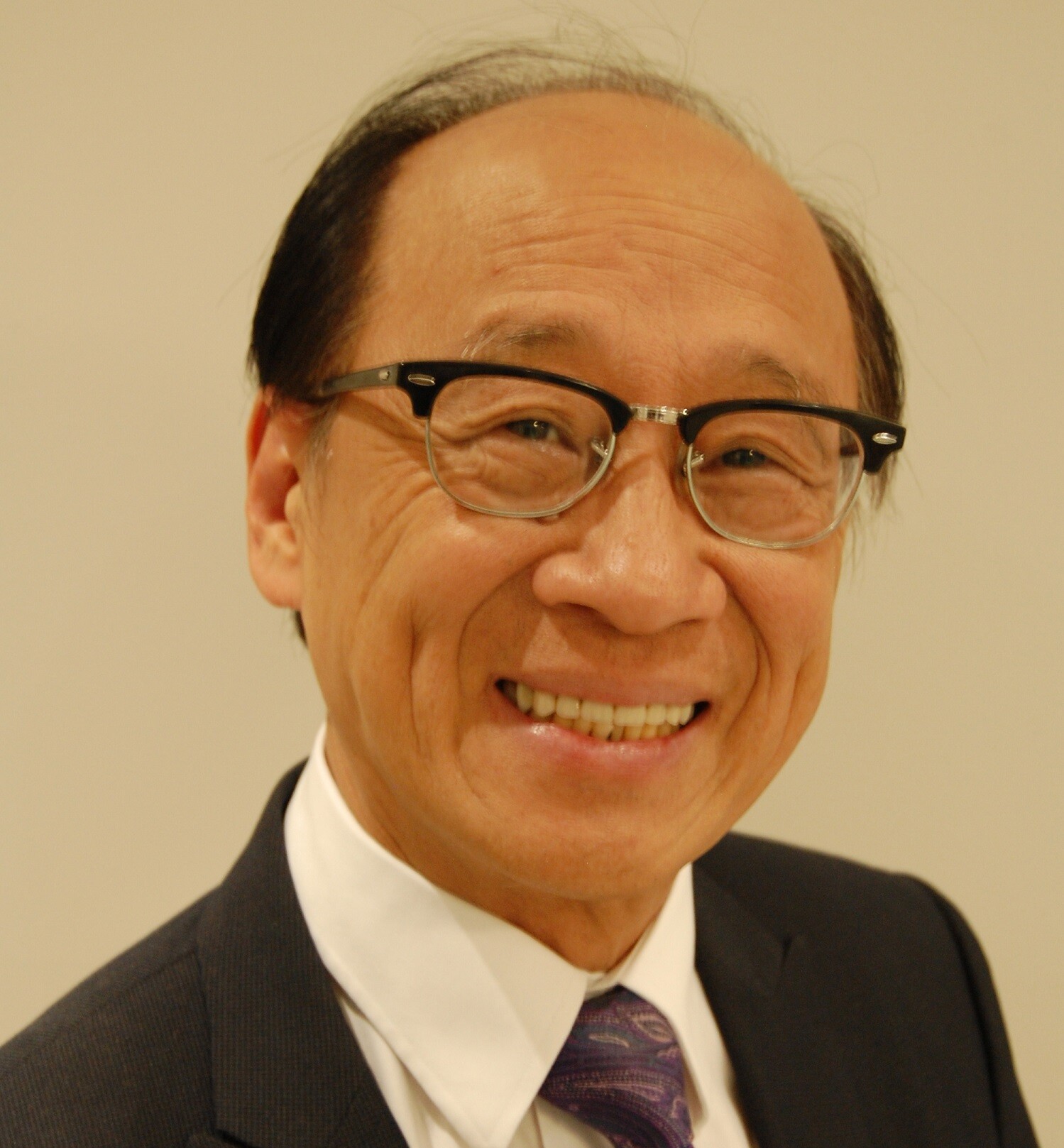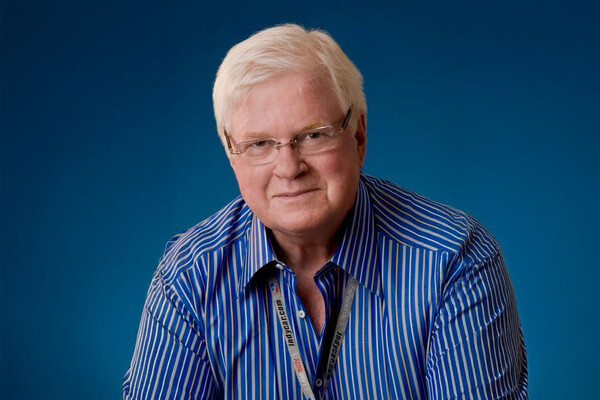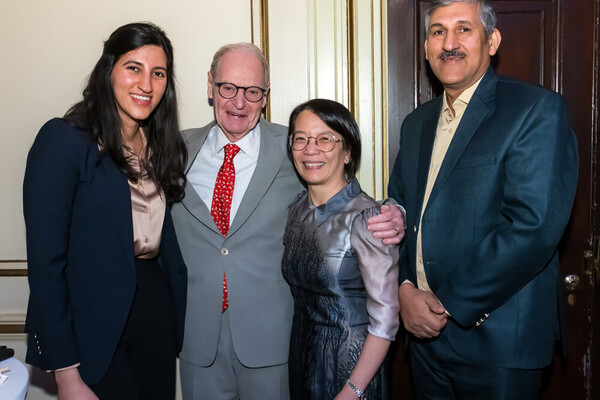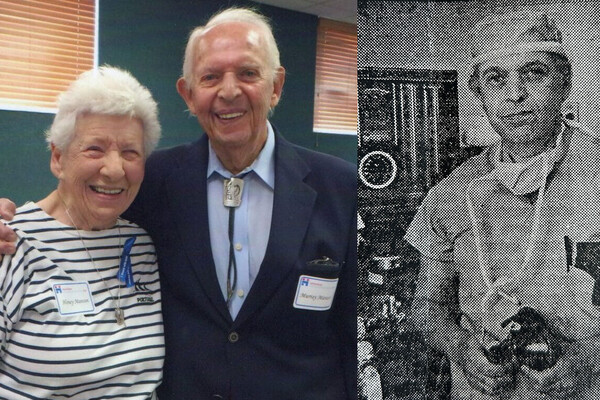Main Second Level Navigation
Breadcrumbs
- Home
- News & Events
- Recent News
- For the Love of Learning: Wilfred Chung, MD'79
For the Love of Learning: Wilfred Chung, MD'79

Dr. Wilfred Chung, MD’79 is the Chief of Emergency Services at the Kemptville District Hospital in Kemptville Ontario and has served on the Board of Directors of the St. Joseph’s Continuing Care Centre as well as the Champlain Regional Stroke Network's Prevention & Acute Care Committee. He is also the President of The Philomathia Foundation, a family foundation founded and managed by Dr. Chung and his four brothers.
Dr. Chung led the development of the Department of Emergency Medicine at the Hotel Dieu Hospital in Cornwall, Ontario and later served as the Chief of Staff. A pioneer in pre-hospital care, he was named Medical Director for the Associate Base Hospital Program. He is regarded as an expert clinician, has a special interest in physician human resources and has introduced innovative changes in hospital management and pre-hospital care.
I went into med school over 40 years ago and I can honestly say that I still think I made a good choice. I still enjoy what I’m doing.
What first attracted you to U of T Medicine?
I first came to Canada as foreign student in 1972, knowing I wanted to go into medicine. I was lucky because there was an amnesty program at that time that allowed me to become a landed immigrant for my studies. I chose U of T because it has the best reputation.
I chose medicine because I wanted to be different — I am the youngest of six and most of them are engineers. Another reason is because my father suffered from stroke when I was a teenager and that left a big impact on me.
I went into med school over 40 years ago and I can honestly say that I still think I made a good choice. I still enjoy what I’m doing and I’m glad I chose a different path from my brothers.
What skills did U of T give you to succeed?
As a medical student, I was pushed to do my best. Our professors were very demanding of us and we were expected to rise up to those challenges. This striving for excellence has remained with me.
Hard work and service were also emphasized during our training. We were told very early that being in the medical profession is a privilege and we’re there to serve our patients. We learned special skills, but all along we were told to apply those skills to solve patient problems.
When I chose to go into emergency medicine that specialty was very new; in fact, I was part of the first group of physicians practicing emergency medicine in Canada. I realized that to take care of our patients properly we have to do more than just provide care in the hospital setting. People are sick before they reach us, so pre-hospital care is also very important. Working with non-physicians on establishing pre-hospital care was a big part of my work in my early career. I came to realize that emergency medicine, and medicine as a whole, is really team work — we need to work with nurses, paramedics and others. With their support I was able to overcome obstacles in the new specialty of emergency medicine where otherwise I would have had to figure things out on my own.
Describe a typical day at work.
I think the best way to describe emergency work is that I manage chaos. The work is highly unpredictable and that’s the beauty of it — at any one time we have to be prepared to face anything. It’s not unusual for me to all of a sudden need to manage two or three ambulances that come in with people suffering from heart attacks or car accidents.
Part of our training in mass casualty triaging is to realize that in some situations, because of limited resources, we have to forgo some treatment on some patients. It’s picking out the right people to treat at the right time. So we manage chaos.
I don’t see it as stressful, to me it is exciting. When it is chaotic, I can’t get stressed out, or my whole department will break down. Instead, the more chaotic it becomes, the more driven I become. I see all these activities as opportunities to show what I am capable of doing.
Tell me about the Philomathia Foundation. What inspired you and your brothers to establish it?
Managing this foundation is my part-time job. Originally, it was my brother’s idea to have a family foundation. We realized how lucky we’ve been in life — we grew up in a very poor family but all developed successful careers in different fields. So we decided that we should give something back to the community. In our case, community is global, since we’re spread all over the world — I have three siblings in Hong Kong and two in Los Angeles.
Instead of giving small donations to many different causes, we selected a narrow focus for what we would support: research and education. We chose the Greek word philomathia, which means “love of learning” and I think it captures what we’re trying to do.
We wanted to make an impact by selecting important global issues and providing seed funding for research. We believe that once we raise awareness, hopefully government funding or other foundations will follow with additional support. Initially we focused on alternative energy, which was 20 years ago, before it became a popular topic. A lot of good work has come out in that area of research. We are always in discussion with different knowledge leaders to see what the next big issue is. We don’t expect solutions right away but we will get them twenty years from now.
With medicine, what we do is very personal — we help our patient on a one-on-one basis. For doctors, this work is really gratifying but the impact is really small. For the patient, the impact is huge, but to maximize the enormity of impact, you need to somehow scale up. The reason I’ve chosen to do that philanthropic work is that I feel the impact we’re going to make with climate, water, and food supply issues will affect more people.
What advice do you have for current medical students?
I have three pieces of advice for current students:
Be a life-long learner. In this age of knowledge discovery, it is important to develop ways of acquiring knowledge beyond medical school to be a competent physician. Be a servant to your patient's health needs. It is important to remind ourselves that we have the duty to use our knowledge to look after our patients. Keep a global view on human issues. Be aware of ways outside of medicine that can improve the well-being and harmony of human existence.
News


